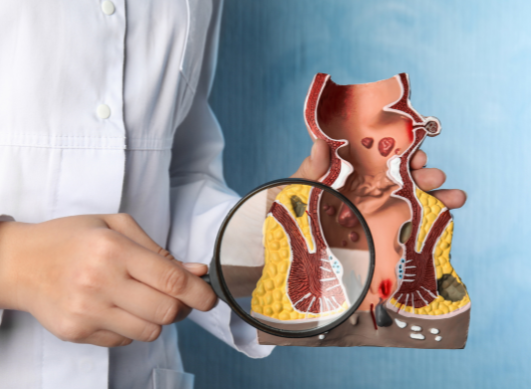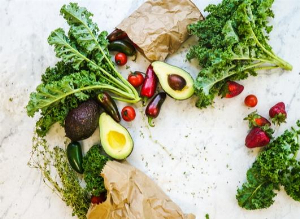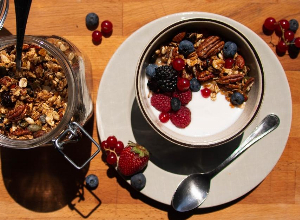What diet should one follow before a colonoscopy?
Published 19 Apr 2024 • By Candice Salomé
A colonoscopy is a procedure that allows the examination of the inside of the rectum, the large intestine (colon), and the final part of the small intestine. Performed by a gastroenterologist, the patient must adhere to a specific diet a few days prior to cleanse the colon.
But then, what is a colonoscopy? How do you prepare for a colonoscopy? What diet should you follow before the examination?
We'll tell you everything in our article!

What is a colonoscopy?
A colonoscopy is a procedure that allows observation of the inside of the rectum, the colon (large intestine), and the end of the small intestine.
It is performed by a gastroenterologist using an endoscope inserted through the anus. The endoscope is a flexible tube equipped with a small camera, a light, and sometimes surgical instruments that pass through the channel of the endoscope.
The endoscope allows:
- Observation of the internal wall of the intestine to look for potential abnormalities,
- Taking samples (biopsies),
- Carrying out treatments such as the removal of colon polyps. It is the reference examination for diagnosing colon diseases such as colorectal cancer, Crohn's disease, ulcerative colitis, colon polyps, etc.
A colonoscopy is prescribed when there are certain digestive symptoms (presence of blood in the stool, abdominal pain resistant to treatments, etc.), but also in the monitoring of already diagnosed diseases, or after a positive colorectal cancer screening.
How to prepare for a colonoscopy?
A colonoscopy is performed under general anaesthesia or sedation (light anaesthesia). Thus, a consultation with an anaesthesiologist is mandatory, about 8 to 10 days before the colonoscopy. It is important to inform them about ongoing treatments, allergies, health problems, etc.
During the colonoscopy, the gastroenterologist will observe in detail different parts of the intestine. It is crucial that these parts are perfectly clean, without any faecal matter. Thus, the doctor will ask the patient to follow a "low-residue" diet (without dietary fibres). This diet is generally followed 2 to 3 days before the examination.
Finally, to complete the cleansing of the intestines, the doctor prescribes a bowel preparation solution. It is a product to be ingested once or twice, either the day before or a few hours before the examination. It is a laxative medication that quickly causes significant diarrhoea without abdominal pain.
On the day of the colonoscopy, one must arrive clean (showered) and fasting. For this, no food, drink, or medication should be consumed from the time set by the anaesthesiologist. Generally, this is 6 hours before the colonoscopy for solid foods and 3 hours for liquids. Additionally, it is generally requested not to smoke during this time, as tobacco increases gastric secretions.
If the preparation instructions are not properly followed, faecal matter persists in the colon. The doctor cannot properly visualize the intestinal wall. Thus, the colonoscopy takes longer and is less precise.
In some cases, despite the possibility of locally washing the intestine via the colonoscope tube, the doctor is forced to stop the examination and must reschedule it.
What diet should one adopt before a colonoscopy?
The diet to follow before a colonoscopy is called "low-residue". It helps to reduce, or even completely eliminate, the fibres present in the diet, particularly vegetable fibres. The low-residue diet reduces stool volume and slows down intestinal transit.
Its exact nature and duration are specified by the gastroenterologist during the pre-colonoscopy consultation.
Foods to avoid
- Vegetables (raw or cooked),
- Fruits, raw, cooked, or blended (including jams or dried fruits),
- Whole grains, brown rice, lentil or pea purées,
- Flax seeds, pumpkin seeds,
- Meats with tendinous or long fibres, processed meats (except ham), sauced meats, smoked meats, game, offal, tripe,
- Fried, smoked, salted, dried, or canned fish,
- Fermented cheeses (goat cheese, blue cheese, etc.) and fresh cheeses,
- Cream-filled pastries, frozen desserts, and sorbets,
- Hard alcoholic beverages and fruit juices with pulp,
- Condiments and seasonings like mustard, vinegar, pickles, olives, spices, garlic, and onions,
- Fresh, hot, whole, stale, or toasted bread,
- Milk and dairy products.
Foods allowed
- Lean fish cooked without fat (trout, cod, whiting, sea bream, hake, etc.),
- Lean meats (beef, chicken, poultry, rabbit, etc.),
- Eggs (hard-boiled, soft-boiled, but not fried),
- Starches (boiled potatoes, white rice, pasta, semolina),
- Skinned white ham or turkey breast,
- Some low-lactose dairy products (plain yogurt, cottage cheese),
- Hard low-lactose cheeses (Cheddar, Swiss, Parmesan, Monterey Jack, Colby, Gouda, Provolone, etc.),
- White bread, sandwich bread, brioche, rusk,
- White sugar, honey, (avoid chocolate and caramel),
- Still water, strained vegetable broths, light tea or coffee, herbal teas,
- Wine, but in small quantities (one glass per day).
Some doctors prohibit milk and natural dairy products, while others do not. Consult your practitioner for advice.
Was this article helpful to you?
Give it a "Like" and share your thoughts and questions with the community in the comments below!
Take care!
2 comments
You will also like

The Hypotoxic (Seignalet) diet: Is it effective for certain chronic illnesses?
23 Jul 2021 • 6 comments

 Facebook
Facebook Twitter
Twitter


